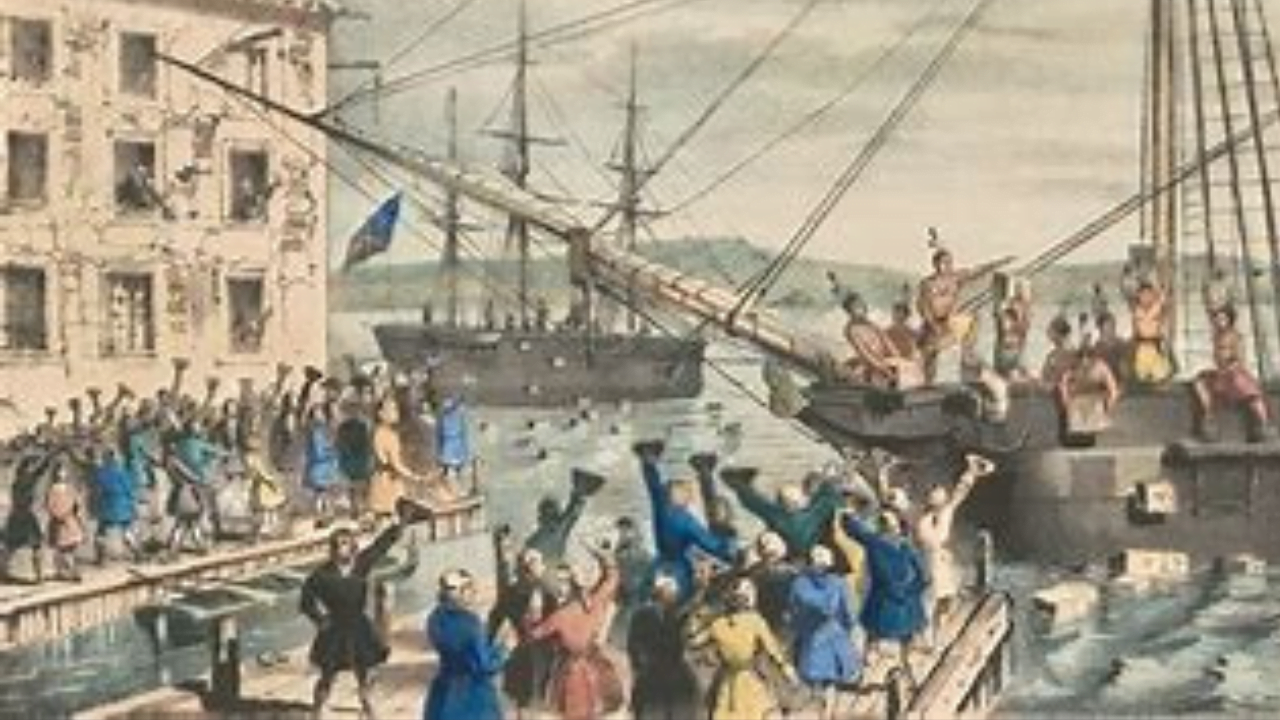Unveiling New Bedford’s Hidden Role in the Boston Tea Party
Recollections of American colonists masquerading as Native Americans tossing tea chests into Boston Harbor come back as the Boston Tea Party’s 250th anniversary draws near. But within all of this historical drama, there is another, lesser-known story of the powerful Rotch family of New Bedford and how they were involved in this historic event.
Joseph Rotch and his sons are acknowledged as one of the founding families of New Bedford, and they had a significant influence on the development of the city. In the 1760s, they brought their booming whaling enterprise to New Bedford, which helped the town become a well-known shipbuilding hub. Among their noteworthy accomplishments was building the “Dartmouth.”
The Unintentional Role of the Dartmouth:
The Dartmouth was put into service in 1767 and was intended to be a whaleship and freight carrier. Its first cargo was whale oil, which it carried to London, England. The captain had no idea that on these trips, American ships were required by a Parliamentary decree to purchase tea as part of their freight. As a result, the Dartmouth inadvertently filled up with the notorious tea of the British East India Company.
The 250th anniversary of the Boston Tea Party, a pivotal event on the road to the American Revolution, was marked with a series of events in the city on Saturday, culminating in a reenactment of the destruction of the tea. https://t.co/ufw8TR7YwC pic.twitter.com/1P4ZwqnXqe
— WCVB-TV Boston (@WCVB) December 17, 2023
The Sons of Liberty’s Protest:
The Sons of Liberty were planning demonstrations to stop the discharge of taxed cargo even as the Dartmouth sailed into Boston. When the Dartmouth landed in Boston on November 28, 1773, its owner, Francis Rotch, was presented with a problem. As the deadline for the tea tax drew near, more than 5,000 Bostonians requested the return of the cargo to London.
The Symbolic Act of Opposition:
Finding himself at a loss for what to do, Rotch was unable to unload the cargo without paying the tea tax and was met with the governor’s reluctance to give him special authorization. The Sons of Liberty, dressed in flimsy disguises, boarded the harbor’s ships, including the Dartmouth, the night before the deadline. They systematically tossed 342 chests of British tea, worth more than $1 million, in a prearranged act of treason. If you’re closer to New Bedford, you can tour the replica of the Dartmouth, which was displayed ten years ago to commemorate the 240th anniversary of the Boston Tea Party, by going to the Whaling Museum. whalingmuseum.org has additional details about the museum.
Conclusion: As we commemorate the 250th anniversary of the Boston Tea Party, let’s not overlook the family Rotch and the city of New Bedford, whose unintentional involvement in this famous act of disobedience had a profound impact on the development of American history.
Further Readings

Mitsuo Fuchida: The Pilot Who Led the Infamous Attack on Pearl Harbor in 1941








2 thoughts on “New Bedford’s Hidden Role in the Boston Tea Party: A 250th Anniversary Reflection”